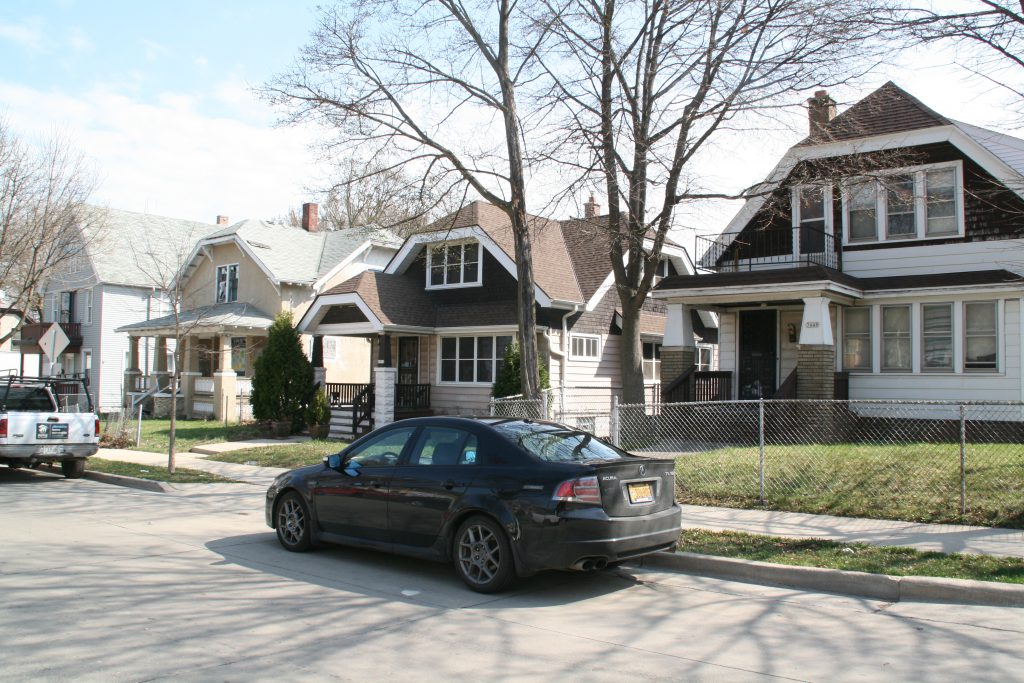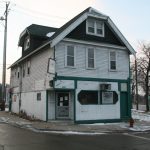50 New Homes For Early-Childhood Educators
LISC, CDA partnering with five centers to develop nearby, owner-occupied houses.
A new partnership aims to build 50 affordable, owner-occupied homes for early-childhood educators that will help the future owners build wealth, while chipping away at the minority homeownership gap, improving neighborhoods and encouraging more workers to pursue a career in child care.
The homes, 1,000-square-foot, single-story structures, would be built on vacant lots near five early childhood centers. Each house would have three bedrooms, one full bathroom and a full basement.
LISC Milwaukee and the Community Development Alliance (CDA) are reviewing five responses to an April request for proposals (RFP). CDA chief alliance executive Teig Whaley-Smith told Urban Milwaukee that the winners are expected to be announced in early June.
The houses would be built near the facilities of five partner organizations: Next Door Foundation (2545 N. 29th St.), Children’s Outing Association Goldin Center (2320 W. Burleigh St.), Malaika Early Learning Center (125 W. Auer Ave.), United Community Center Ricardo Diaz Early Learning Academy (2130 W. Becher St.) and United Methodist Children’s Services Growing Tree Children’s Center (3940 W. Lisbon Ave.). The five organizations’ client base, according to the RFP, is 80% families of color. Each of the centers is located in a low-income neighborhood.
According to the RFP, At least two developers will be selected to construct and sell the homes.
The CDA is guided by a 2021 report and plan that identified substantial racial and economic disparities with Milwaukee’s housing supply. The organization has a goal of creating 32,000 new Black and Latino homeowners over the next three decades.
The key to the latest initiative is a $5 million American Rescue Plan Act grant allocated last summer by Governor Tony Evers as part of the state Workforce Innovation Grant Program. According to a financing model included in the RFP, the funding will be allocated as a $109,000-per-home grant to a developer to close the gap between the estimated $209,000 cost to develop and build the house and the resulting $101,850 sale price.
The new homeowners would go through homebuying counseling and have an $87,000 30-year mortgage at 4% interest. The monthly mortgage payment, inclusive of taxes and insurance, is estimated to be $736 per month. Appliances are to be provided, as is a $15,000 downpayment.
The houses, according to a plan set published with the RFP, were designed by Quorum Architects for Milwaukee Habitat for Humanity.
In the Milwaukee metro area, white residents are twice as likely to own their home as Black residents and 1.4 times more likely than Latino residents. Due to lower incomes and/or living in older properties that can require more spending, more than 55% of renters and 31% of homeowners spend more than 30% of their household income on housing, a level the federal government and other agencies have labeled as “cost burdened.” The early-childhood-educator program is one of several the CDA has underway to attempt to close that gap.
The organization is also partnering with Milwaukee County, Habitat and Emem Group to build 120 houses in the area around King Park, working with the city’s Environmental Collaboration Office to construct environmentally-friendly, factory-built houses in the Lindsay Heights neighborhood, supporting the development of Acts Housing $10 million acquisition fund and partnering with Milwaukee County on an initiative to develop more affordable housing in suburban communities.
The City of Milwaukee is also working to bolster the number of early-childhood educators. It allocated $7 million from its ARPA grant to the Wisconsin Early Childhood Association to provide bonuses to workers in the field and train more young men to enter the field. Milwaukee Succeeds reports the median starting wage for early childhood educators in the city is $13 per hour. Based on February data provided by Milwaukee Succeeds, 68% of the bonus recipients identify as Black, 20% as white, 18% as Hispanic, 3% as multiracial, 2% as Asian and 5% as other. According to research from Milwaukee Succeeds, there are 45,000 children in Milwaukee under the age of five, but only 28,000 childcare slots.
A copy of the RFP is available on Urban Milwaukee.
If you think stories like this are important, become a member of Urban Milwaukee and help support real, independent journalism. Plus you get some cool added benefits.
Eyes on Milwaukee
-
Church, Cupid Partner On Affordable Housing
 Dec 4th, 2023 by Jeramey Jannene
Dec 4th, 2023 by Jeramey Jannene
-
Downtown Building Sells For Nearly Twice Its Assessed Value
 Nov 12th, 2023 by Jeramey Jannene
Nov 12th, 2023 by Jeramey Jannene
-
Immigration Office Moving To 310W Building
 Oct 25th, 2023 by Jeramey Jannene
Oct 25th, 2023 by Jeramey Jannene























This all seems shockingly racist and illegal.
@Ryan – The program is designed not to violate fair housing laws by not being available exclusively for minorities. The educators, however, are overwhelmingly people of color. The RFP and a supporting FAQ on the CDA website provide more detail.
Why don’t we see more of this!
Renting is a trap and doesn’t build the community. Why not a similar program for city workers, teachers, firefighters, . . . If a company owning rental properties isn’t doing the right thing, perhaps the city should take over the property and facilitate the sale or rent to own.
Habitat for Humanities refurbing homes with the new owners helping with labor.
There is so much that could be done to help in Milwaukee. Create a better place – but, then those in Madison would have to give the city our fair share of revenue. Invest in the parks, schools, . . . Build communities and increase the property values of everyone. Bring people to the city, eliminating the commute from the suburbs . . .